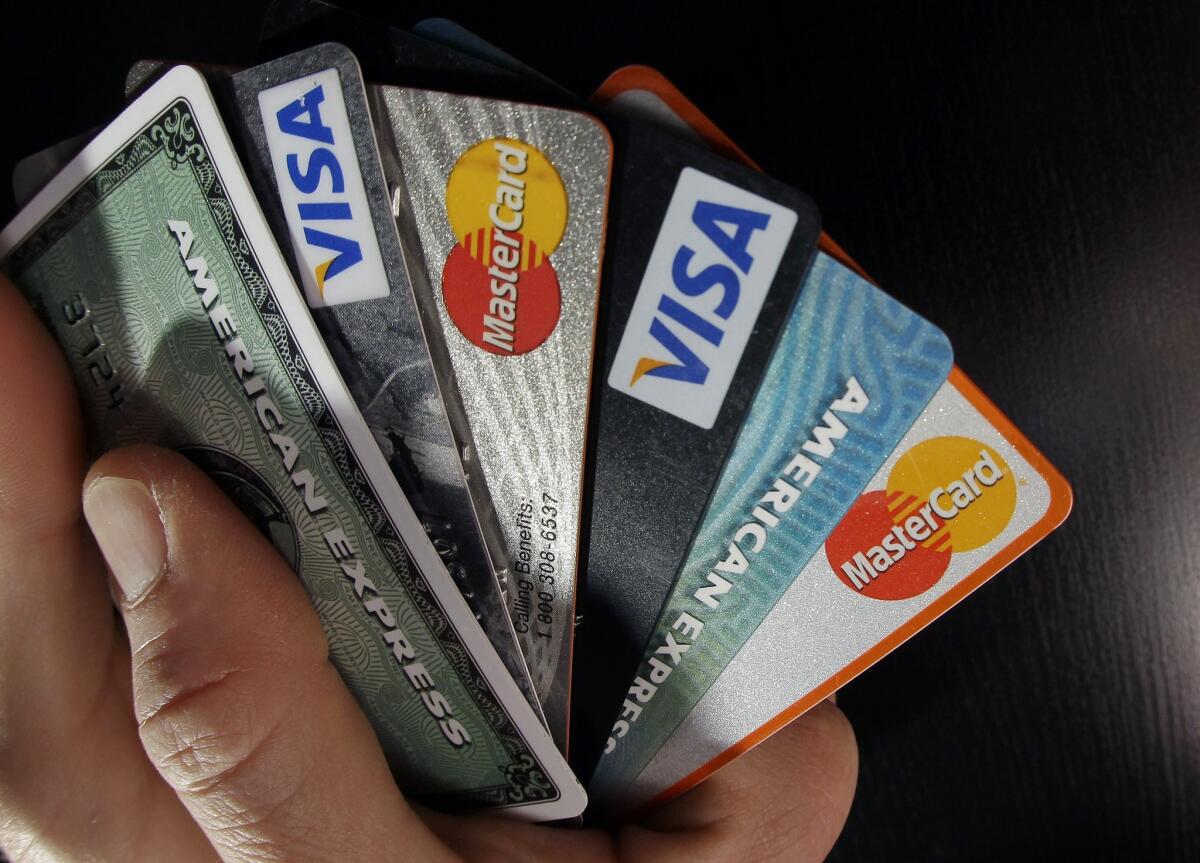4 credit card trends for 2017 and what they mean for you

In 2016, high-end credit cards attracted a lot of attention with generous rewards and perks. But this year, issuers are going back to basics — and perhaps charging you more in the process. Here are four credit card industry trends taking shape for 2017.
1. More bread-and-butter rewards
Instead of aspirational rewards, such as free hotel stays and airline flights, issuers will focus more on “bread-and-butter rewards” this year, such as cash back, says David Robertson, publisher of the Nilson Report, an industry newsletter.
“In 2017, we’ll see much more offers aimed at people in the middle class,” Robertson says. “All the big issuers have already committed themselves to their upscale programs. They have nowhere to go but down.”
The upshot: Keep an eye out for improved cash-back offers from issuers. More competition is great news, especially if you spend more at the grocery store than on first-class flights.
2. Higher interest rates
Recent projections by the Federal Reserve suggest that interest rates could rise by three-quarters of a percentage point this year. That means credit card debt could soon become more expensive, potentially costing you hundreds of dollars in additional interest over the next five years.
The upshot: When you pay your balance in full each month, you never have to pay interest. Move any credit card debt to a card with a 0% balance transfer annual percentage rate, and pay it down interest-free.
3. A growing subprime market
In 2016, the percentage of credit card accounts held by consumers with subprime credit reached its highest level since 2010, according to credit bureau TransUnion. But this doesn’t suggest a return to the days of easy credit, when it seemed even house cats could prequalify for cards with $20,000 limits.
“The credit card issuers are really very diligent about managing their risk and how much credit they’re providing on an account basis,” says Paul Siegfried, senior vice president of financial services at TransUnion. Delinquencies are staying relatively low.
The upshot: If you have bad credit, now’s a good time to get a secured credit card and start rebuilding your score.
4. Smoother transactions
About three-quarters of people who owned a smartphone and had a checking account or debit card said they had used a mobile device to make at least one purchase or other type of payment in the last 12 months, according to a 2016 study by First Annapolis Consulting. On top of that, issuers are offering cardholders more ways to make purchases and redeem rewards directly with merchants online and through apps.
The upshot: If you’re taking advantage of these faster payments, guard against overspending by sticking to a weekly spending limit.
Claire Tsosie is a staff writer at NerdWallet, a personal finance website.
ALSO
Five tips for investing in your 30s
Will closing high-interest cards hurt your credit score?
Two-thirds of Americans aren’t using this easy way to save for retirement
More to Read
Inside the business of entertainment
The Wide Shot brings you news, analysis and insights on everything from streaming wars to production — and what it all means for the future.
You may occasionally receive promotional content from the Los Angeles Times.








